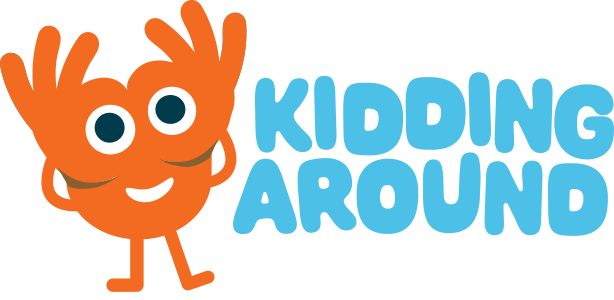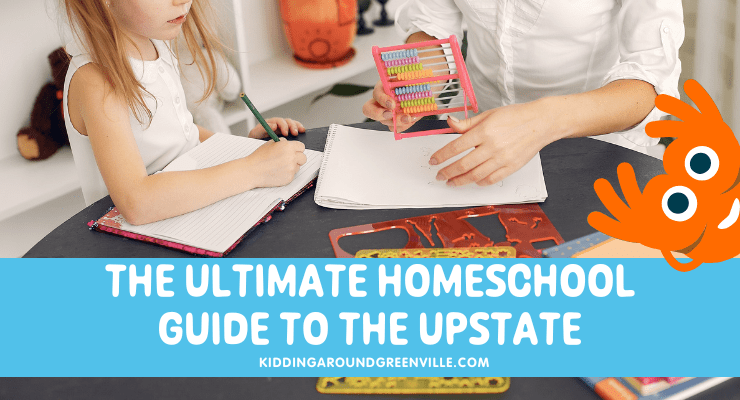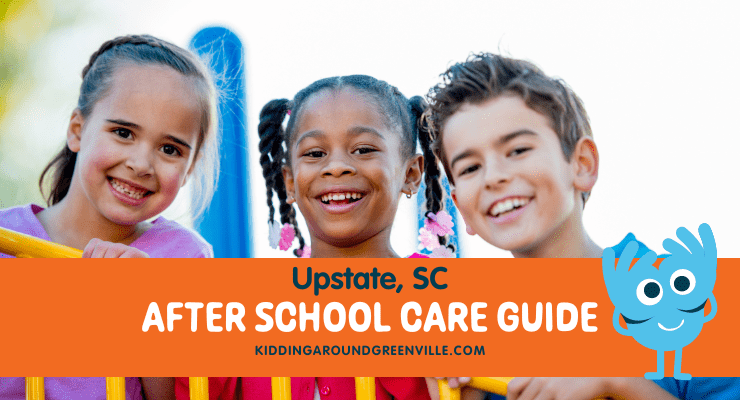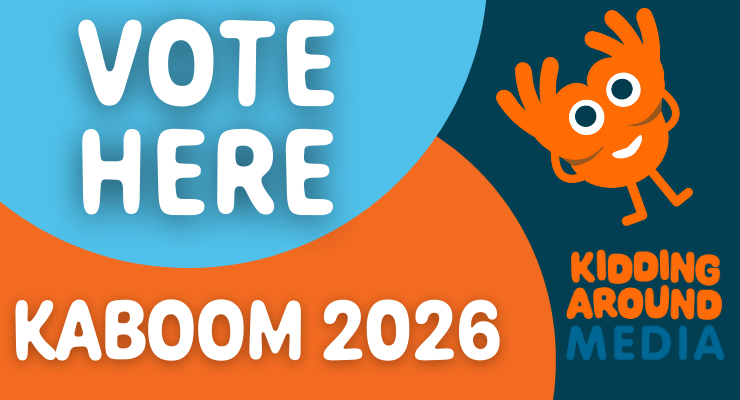Thinking about homeschooling? We’ve gathered some common first timer homeschool questions and asked Dianna Broughton, director of Carolina Homeschooler, to help us with some answers.
Carolina Homeschooler is an Option 3 Homeschool Association. Dianna also runs Traveling Homeschoolers, a group that provides domestic and international group travel for homeschoolers and their families. She’s also the author of a book for new homeschoolers called, Homeschool Essentials: A Practical Guide to Getting Started.
As an Amazon Associate, Kidding Around earns from qualifying purchases.
- Looking for more help? Don’t miss the Kidding Around Greenville Homeschool Guide with homeschool classes, activities, co-ops, field trips, and more in the Upstate, SC area.
Q&A About Homeschooling in SC
1. What has to be done in order to legally homeschool in SC?
To legally homeschool in SC, parents must register through one of the three options (usually Option 3), teach the required subjects, and keep records and attendance as the law requires. (My Beginning Homeschooling FAQs will help with this.)
2. Why do people choose to homeschool under option 3?
The vast majority of families choose Option 3 because there’s less record-keeping, no mandated testing, less intrusive, and less expense. Also, many Option 3 associations offer more services than the other options, such as field trips, classes, learning co-ops, workshops, and more.
3. Do homeschool kids have to test out of each grade in order to progress to the next one?
Standardized testing isn’t needed, nor required, for students homeschooling through Option 3.
4. As the director of a homeschool association, what’s the biggest mistake you see new homeschool parents make?
New homeschoolers often try to replicate the public schools, and then burn out. They don’t understand that child-led learning is better (for all students, not just homeschoolers).
Children who initiate and take ownership of their education learn more and retain it longer. I don’t know of any research that doesn’t support this fact. Public schools can’t take this approach because teachers don’t have time to mentor or facilitate a class full of students if each of them are learning different things. And even if they did, it would be too expensive for them to provide the resources for each individual student.
Homeschoolers don’t have any of these constraints and limitations, so they shouldn’t try to replicate the public schools. They should explore and develop the method that works best for their family.
5. What are some of the most prevalent misconceptions about homeschooling?
Common misconceptions are that homeschoolers stay at home all day, are “unsocialized,” have the same educational methods, religious beliefs, and backgrounds.
We’re as diverse as any other population, are religious and secular, have different learning methods and philosophies, and often have to pick and choose social events because there are so many available to homeschoolers now.
6. How do you recommend families tackle the task of finding curriculum or deciding what to teach? What should people look for in a curriculum?
I recommend that new homeschoolers research more about the different homeschooling styles and methods before choosing a curriculum. It can be as simple as a library card and time to read, to a full curriculum complete with textbooks, teacher’s guides, and tests.
My homeschooling guide discusses different methods, ranging from a structured, school-in-a-box approach to a relaxed, child-directed style, provides reviews of favorite resources, describes typical days, and more. (Check your local library or borrow a copy through SCLends.)
7. How do homeschooled kids make friends if not in a traditional school?
There are many opportunities for children to make friends – scouts, 4-H, church, learning co-ops, support groups, field trip groups, travel groups, etc.
8. Can parents homeschool and work full-time?
Children can learn in many different settings and circumstances. The issue with working full-time is supervision of the children (whether homeschooling or not).
Remember that learning happens all the time, and 365 days a year. As long as you document 180 of those days, you’re in compliance with SC law. So you have plenty of flexibility to learn around your work hours, can outsource with tutors, learning co-ops, grandparents, etc.
9. How much money should you budget for homeschooling? Thinking of things like field trips, textbooks, workbooks, curriculum, and extracurricular classes.
This varies so much from family to family that I can’t answer effectively. However, anyone can get a free, world-class education with just a library card and time to read, so money shouldn’t be a deciding factor regarding whether to homeschool or not.
10. What advice do you have for families that are wanting to homeschool but plan to place their kids back in public/private schools in the future?
If they’re definitely returning to public or private school in a year, parents should try to coordinate the children’s learning with what the schools are doing. It’ll make for an easier transition, if not the best educational experience.
11. What advice do you have for those wanting to homeschool high schoolers?
The main focus for high school students should be to explore and discover their passions and talents, and then tailoring their learning to develop those interests and skills. That will be their career.
If their future goal requires a college degree, they’ll need to research what’s required for admission to the colleges they’re interested in. Many good colleges value unique learning experiences and transcripts, so students may have more flexibility in their high school course of study. I recommend they talk to admissions staff early on to see how much their college of choice leans toward cookie-cutter transcripts.
If their future goal involves starting their own business, they’ll need to apprentice during their high school years, and learn how to start and manage their own business, manage employees (if not a sole proprietor), keep financial records and bookkeeping, etc.
Based on my experiences over the past 30 years, public schools, private schools, and many homeschools, spend way too much time on producing cookie-cutter transcripts for their students, rather than focusing on meaningful learning experiences tailored to each student’s strengths and interests. That’s why so many students graduate without a clear path, or even preliminary goals.
One last note – skilled trades, entrepreneurship, and other non-college goals, are not “less than” college goals. College is just one choice, and not always the best choice for high school students. Some goals require it, others don’t. Students with no clear goals should consider college as a way to give themselves more time to explore their options.
Are you considering homeschooling your children?







































